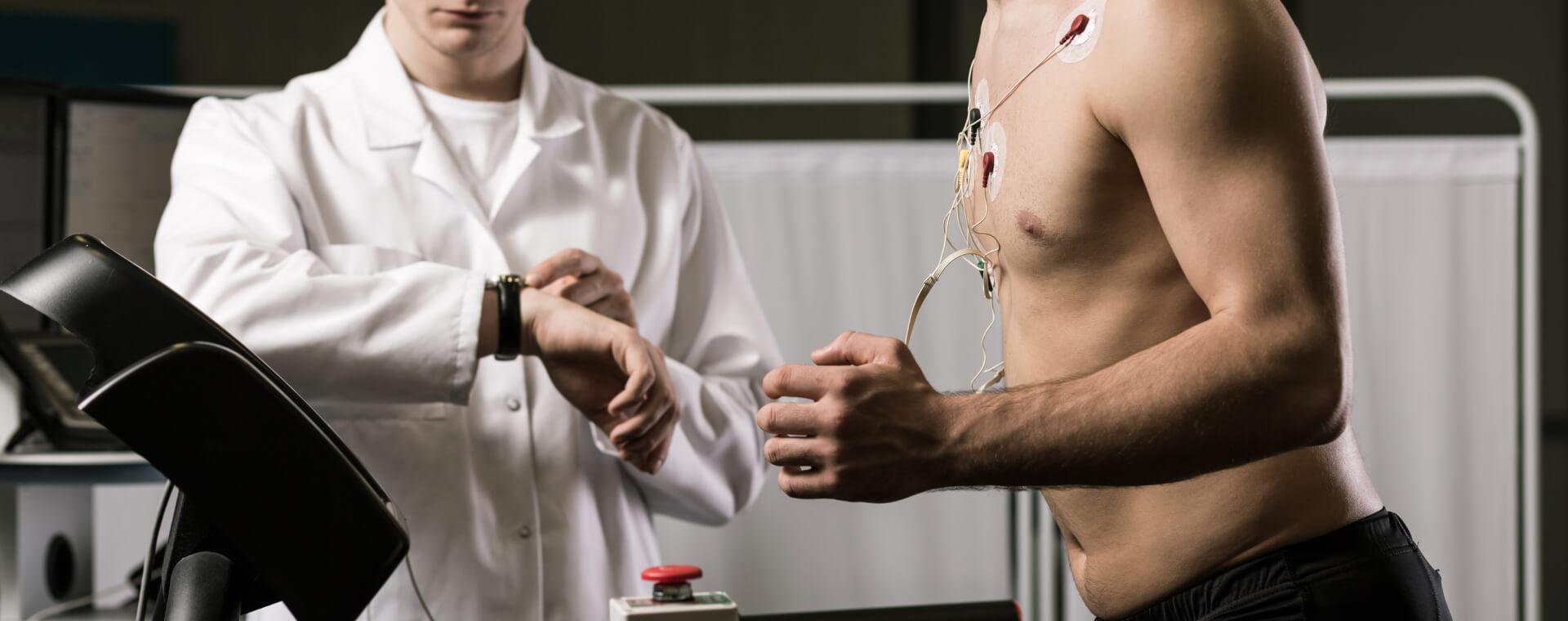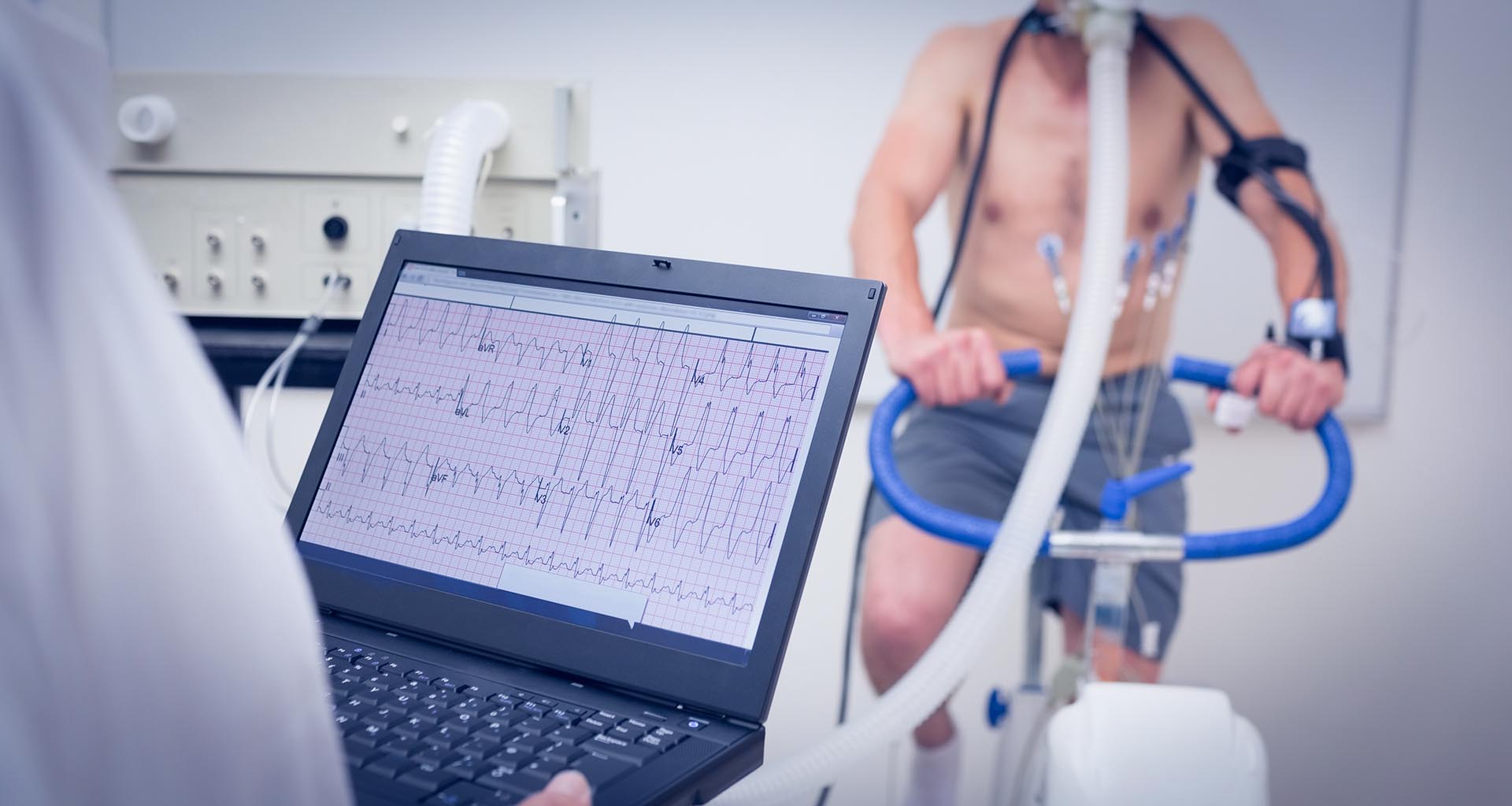
Stress Testing

At Carolina Cardiology & Vascular Associates, we perform a variety of standard and state-of-the-art procedures to diagnose, treat and monitor cardiovascular conditions. Dr. Dan Bouknight has been a leading provider of cardiovascular care in the Midlands of South Carolina for nearly 20 years. Together with his exceptional staff, Dr. Bouknight strives to provide patients with comprehensive and compassionate care, starting with using proven technology like stress testing to deliver the most accurate diagnostic information for cardiovascular diseases.

What Are Stress Tests?
Stress tests are used to show how well your heart handles physical exertion. During a stress test, your heart is monitored while you exercise, typically by walking on a treadmill or riding a stationary bicycle. If you cannot exercise, you can be given a medicine that makes your heart beat harder and faster, as though you were actually engaging in vigorous physical activity. Stress testing allows your doctor to look for evidence of abnormal rhythm or insufficient blood flow to your heart in order to make an accurate diagnosis of your condition.
What Are Stress Tests Used For?
A stress test may be used to:
- Observe your heart rate, heart rhythm and blood pressure during exercise
- Assess the function of your heart valves
- Look for the underlying cause of chest pain or breathing difficulties
- Diagnose an irregular heartbeat
- Diagnose blockages in blood flow
- Determine your risk for a heart attack or other serious cardiovascular condition
- Monitor how well treatment is working if you have already been diagnosed with heart disease
- Develop a safe exercise program for you
- Assess your cardiac fitness level compared to others in your age range

What Happens During a Stress Test?
We perform two types of stress test at Carolina Cardiology & Vascular Associates:
Treadmill Stress Testing
In a traditional treadmill stress test, electrodes are attached to the body so the heart can be assessed. The patient starts walking slowly on a flat treadmill. The pace and incline of the treadmill are gradually increased so the heart must work harder. Heart rate, blood pressure, electrocardiogram (ECG or EKG), breathing and how tired the patient feels are monitored during the process. The test continues until a target heart rate is reached or the patient develops symptoms that make them unable to continue. The patient is given time to recover as their heart rate, blood pressure and breathing are monitored.
Nuclear Stress Testing
A nuclear stress test uses a small, safe dose of a radioactive imaging agent to track blood flow to the heart and evaluate heart function. The imaging agent emits a minor amount of radiation that can be seen with a special camera. To begin the test, an IV is started and the radioactive solution is administered via injection. The patient rests while the solution travels through their body. A special camera (a gamma camera) is then used to take pictures of the heart and observe what it looks like at rest. The second portion of the test is a treadmill stress test. When the patient’s heart rate peaks, the imaging agent is injected again and pictures are taken to observe the heart during exertion. The two sets of images can then be compared to identify irregularities.

Is There Any Preparation For Stress Tests?
Before your test, you will have a consultation with Dr. Bouknight. He will ask you about your symptoms and your medical history, and give you instructions about how to prepare. You may be asked not to eat or drink for several hours before the test, to stop smoking or to stop taking certain medications. Make sure to dress in loose, comfortable clothing that allows for movement on the day of your test. Comfortable shoes, such as athletic sneakers, are also recommended.
Are There Any Risks Associated With Stress Tests?
Stress tests are safe for most patients. They are performed in a controlled environment under the supervision of a trained medical professional. Some people experience symptoms such as dizziness, nausea or chest pain as a result of the physical exertion. The risk of adverse reaction is low, as patients are evaluated in a consultation before the procedure to determine whether they are a suitable candidate for stress testing. Patients are monitored closely throughout the test to ensure it is being done safely and that any issues can be treated quickly.
What Results Can a Stress Test Show?
A normal test result means that no blood flow issues were discovered. An abnormal stress test could reveal reduced blood flow to the heart or irregular heart rhythms, or indicate a higher risk of coronary artery disease. Further testing may be required to confirm a diagnosis.
Do I Need a Stress Test?
You may need a stress test if you are exhibiting symptoms of limited oxygen or blood flow to your heart. These include shortness of breath, chest pain and irregular heartbeat (arrhythmia). You may also need a stress test to evaluate your heart health if you have had recent heart surgery or a heart attack, are at higher risk for heart disease, are currently being treated for heart disease or are planning to start a new exercise program. If you are interested in learning more about stress tests or other options for cardiac testing in West Columbia, we invite you to contact us at (803) 888-2282 to schedule a consultation.
Schedule Consultation
Schedule Consultation
Call us at (803) 888-2282 or fill out the form below to schedule a consultation with us!

